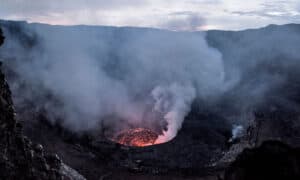Wisconsin is a haven for anglers. The midwestern state has over 15,000 lakes, including portions of Lake Michigan and Lake Superior. The bigmouth buffalo fish is a species that people love to catch in this state. Discover the largest bigmouth buffalo ever caught in Wisconsin! Find out how large it was, where it was caught, and whether the state record is the all-time record for the species!
Before we get started looking at the record, we have to get to know the species a little better!
About the Bigmouth Buffalo Species
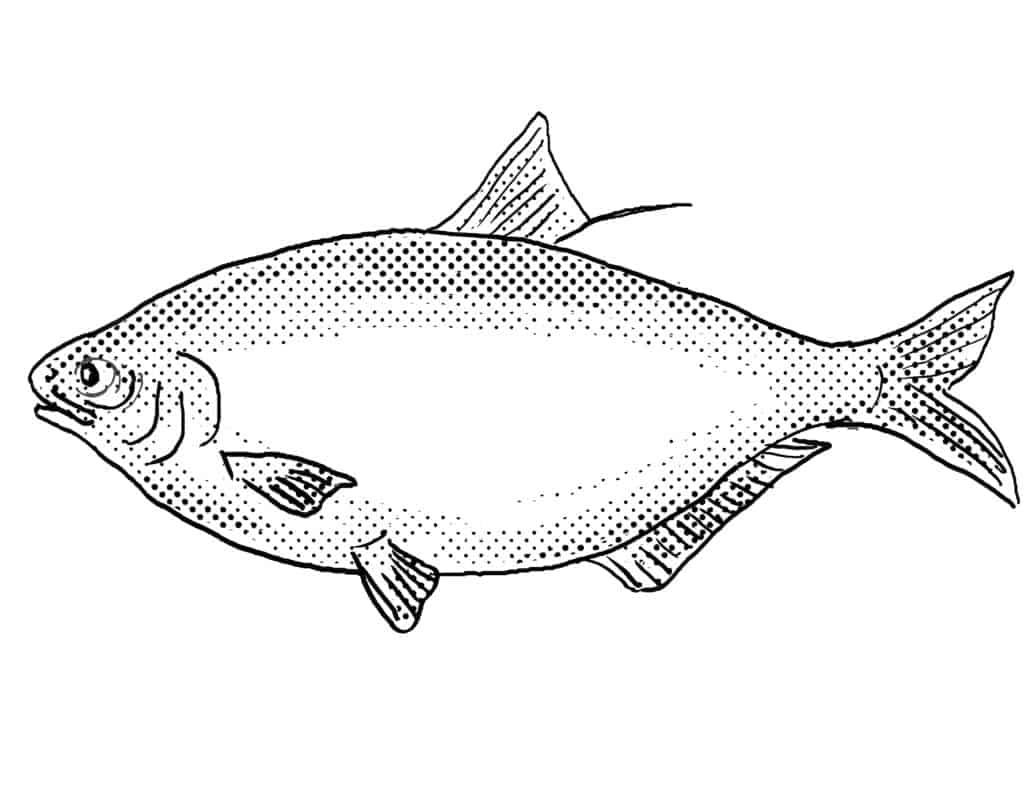
Bigmouth buffalo have a mouth that extends beyond their eyes.
©patrimonio designs ltd/Shutterstock.com
The bigmouth buffalo fish (Ictiobus cyprinellus) is a large species of fish from the Cypriniformes order. A total of 5 members of this genus exist, and they are:
- Bigmouth buffalo fish
- Black buffalo fish
- Fleshylip buffalo fish
- Smallmouth buffalo fish
- Southern buffalo fish
The bigmouth species is often mistaken for a carp at first glance. However, they are unrelated even though they belong to the same order.
Bigmouth buffalo fish often grow between 2 and 4 feet long, and they typically weigh from two pounds to 14 pounds. The bigmouth buffalo fish is the largest species in the Ictiobus genus. They can reach weights of up to 80 pounds at their largest, and some members of the species have lived over 100 years.
The fish have olive-grey or blue-silver colorations, and they can also appear olive with copper sides. The fish have white bellies, though. They’re known for having long dorsal fins that are highest near their head and become shorter near the tail end.
One can tell the difference between a bigmouth buffalo and a smallmouth buffalo fish by looking at their mouths. The smallmouth buffalo has a typical sucker mouth that is pointed downward, but the bigmouth buffalo has a mouth that is pointed straight ahead.
What Was the Largest Bigmouth Buffalo Ever Caught in Wisconsin?
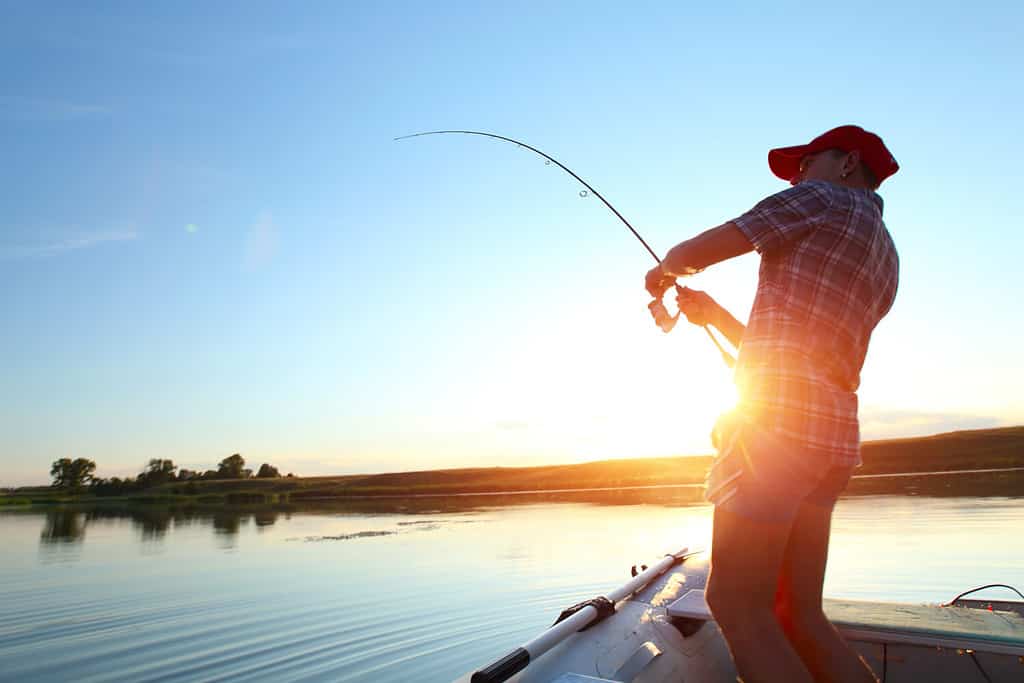
A 12-year-old set the record for the largest bigmouth buffalo in the state.
©Dudarev Mikhail/Shutterstock.com
The largest bigmouth buffalo ever caught in Wisconsin weighed 76 pounds 8 ounces, and it measured 49.5 inches long. A 12-year-old named Noah LaBarge set this record on June 21, 2013. He caught this fish at the outflow at Petenwell Lake, south of the city of Wisconsin Rapids.
The former state record was 54 pounds, and it was captured on June 10, 1988. Although that record stood for 25 years, the new record-setting fish was 22 pounds heavier than the last one.
So, Wisconsin has a history of producing some very heavy members of the bigmouth buffalo species.
Was the Largest Bigmouth Buffalo from Wisconsin the World Record?
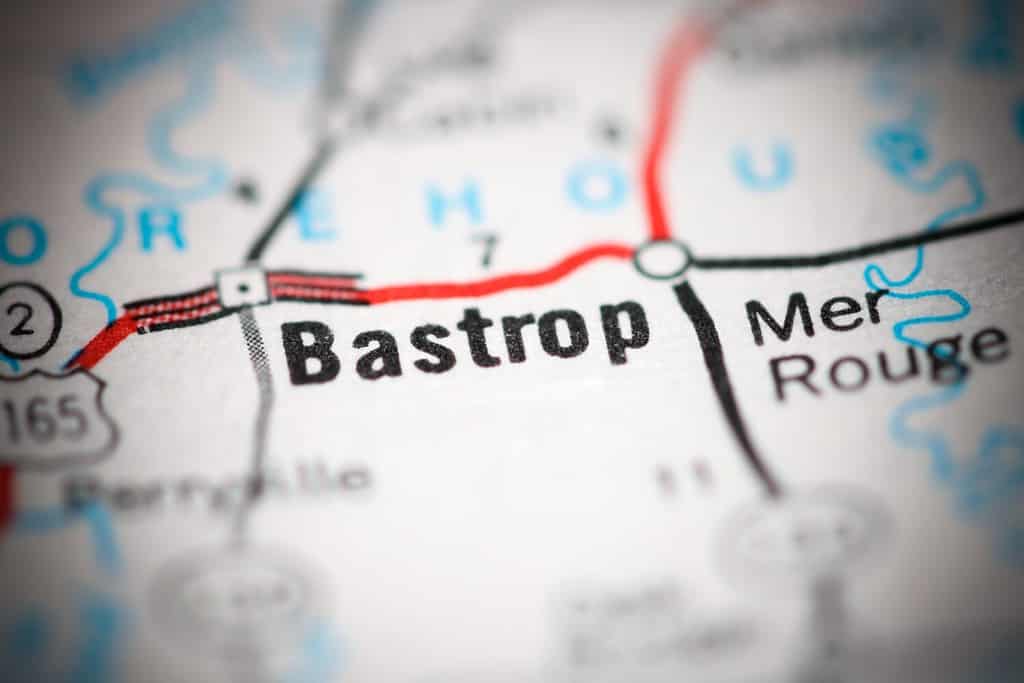
The IGFA lists the record from Bastrop, Louisiana as the largest-ever bigmouth buffalo.
©SevenMaps/Shutterstock.com
The 76-pound 8-ounce bigmouth buffalo fish from Wisconsin may be the largest member of the species ever caught in the United States. The International Game Fish Association (IGFA) lists the world record as 70 pounds 5 ounces.
An angler named Delbert Sisk set that record on April 21, 1980. He caught the fish in Bastrop, Louisiana. This record has stood ever since. However, the fish from Wisconsin is clearly much larger than the fish listed as the world record.
No explanation for why Wisconsin’s record is not in the top spot was readily available. For whatever reason, the record from Wisconsin is not currently listed as the leader. So, at least if we’re using the IGFA as our guide, the largest bigmouth buffalo fish from Wisconsin is not the all-time leader.
Where Is Petenwell Lake on a Map?
Petenwell Lake is in central Wisconsin. This lake spans three different counties. They are Juneau, Wood, and Adams counties. The Wisconsin River flows into the lake from the north. The southern end of the lake is dammed. From there, the Wisconsin River resumes its flow.
Nekoosa is the closest city to the lake, and it’s about 5 miles north of this body of water. Wisconsin Rapids is an even larger city, and it is about 7 miles northeast of Nekoosa.
The area in which the record-setting fish was caught was just south of the lake and the dam at the Wisconsin River Power Plant. This area is the Petenwell Flowage, the site of the record-breaking catch. Petenwell Lake is the largest manmade lake in Wisconsin, so it stands out on maps.
What Other Fish Can You Catch at Petenwell Lake?
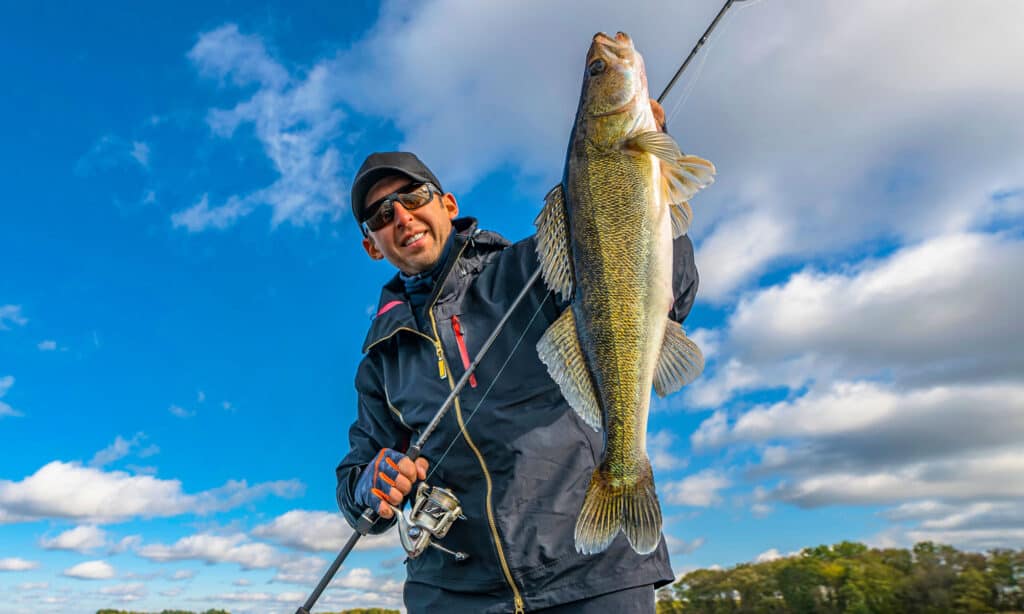
Walleyes are a popular target for anglers at Petenwell Lake.
©FedBul/Shutterstock.com
Petenwell Lake is home to many different species of fish aside from the bigmouth buffalo. As the second-largest lake in the state overall, it has plenty of space for anglers to cast a line. People come from many parts of this state to go fishing here.
Some of the types of fish that people catch in these waters are:
- Walleye
- Northern pike
- Muskellunge
- Largemouth bass
- White crappie
- Bluegill
- Yellow bullhead
- Rock bass
- White bass
These are just a few of the different kinds of fish that people might catch at this lake in addition to bigmouth buffalo.
So, the largest bigmouth buffalo ever caught in Wisconsin was larger than a child. The fish was 76 pounds 8 ounces and just over 4 feet long. However, this fish did not top the IGFA records for some reason. So, Wisconsin’s record-breaking fish is not the all-time record for the species.
The photo featured at the top of this post is © Earl D. Walker/Shutterstock.com
Thank you for reading! Have some feedback for us? Contact the AZ Animals editorial team.






